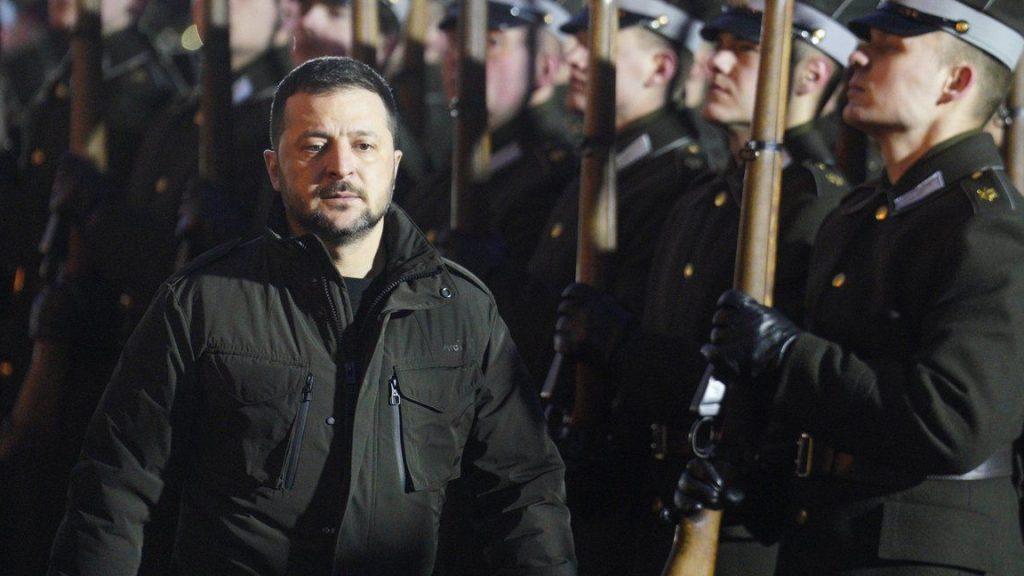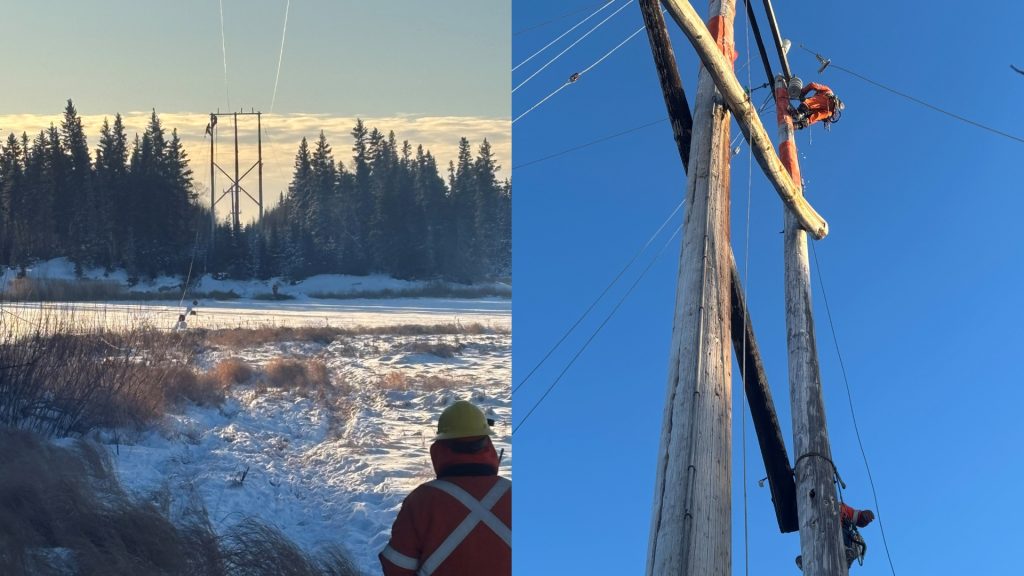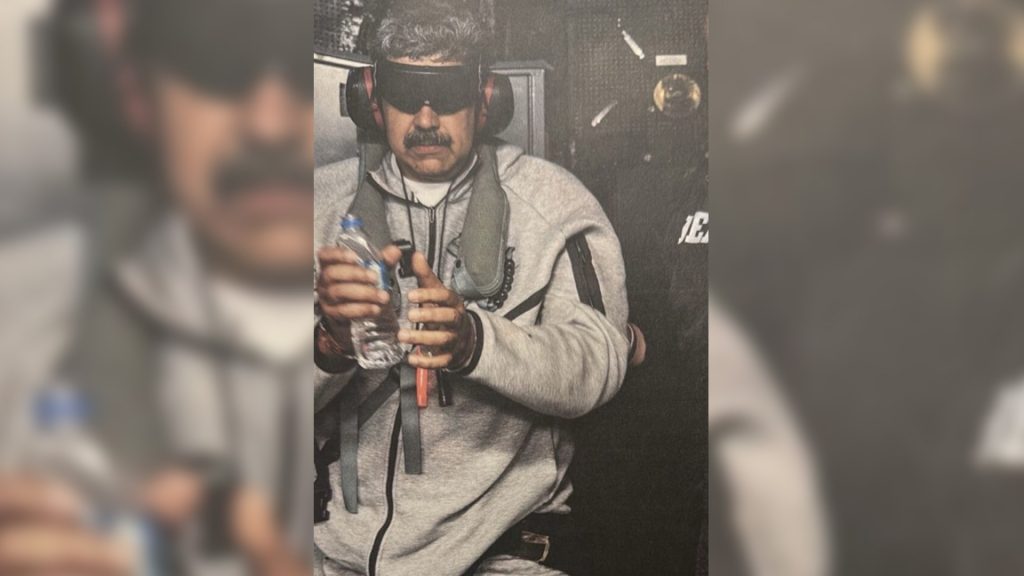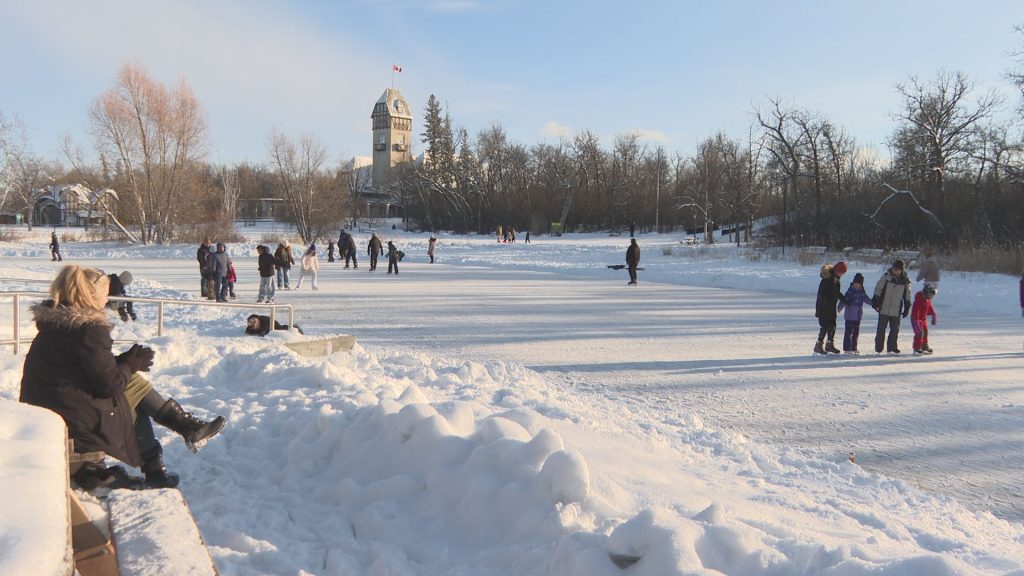Ukraine’s Zelenskyy rules out a cease-fire with Russia, saying Moscow would use it to rearm

Posted January 11, 2024 1:32 am.
Ukrainian President Volodymyr Zelenskyy on Thursday ruled out a cease-fire as his country fights off the Russian invasion, saying the Kremlin’s forces would use the pause to rearm and regroup in order to overwhelm Kyiv’s troops.
“A pause on the Ukrainian battlefield will not mean a pause in the war,” Zelenskyy said during a visit to Estonia. “A pause would play into (Russia’s) hands. It might crush us afterward.”
Limited cease-fires have occasionally been proposed since Russia launched its full-scale war in February 2022 but have never taken hold.
Both sides are scrambling to replenish their weapons after 22 months of fighting and are facing the prospect of a protracted conflict. With the roughly 1,500-kilometer (930-mile) front line mostly static during winter, they both require artillery shells, missiles and drones that enable long-range strikes.
Zelenskyy said Moscow is receiving artillery shells and missiles from North Korea and drones from Iran. On Jan. 4, the White House cited U.S. intelligence officials as saying that Russia acquired ballistic missiles from North Korea and is seeking them from Iran.
Zelenskyy was in the Estonian capital of Tallinn as part of a two-day swing through Baltic countries, which have been among Ukraine’s staunchest supporters.
He met with Prime Minister Kaja Kallas, who gave him a shirt with the Estonian word “Kaitsetahe” — “The will to defend” — printed on the front, which Zelenskyy wore as he addressed parliament.
“Tyranny must be defeated. Tyranny must be a loser,” Zelenskyy said. “Always. Always. Always.”
Zelenskyy said he and Kallas also discussed Ukrainians who fled to Estonia when the war began, telling a news conference that any of them who are of draft age “need to help Ukraine and be in Ukraine.”
His comments came as lawmakers in Kyiv returned a draft law on mobilization to the government for amendments, saying it might contain human rights violations, among other concerns, officials said.
The draft law aims to impose restrictions on citizens who have evaded mobilization duties, as Ukraine grapples with shortages of military personnel.
Zelenskyy said last month that Ukraine’s military wants to mobilize up to 500,000 more troops, but he said he had asked the brass to spell out the details on what is “a very sensitive matter” before deciding whether to grant their wish.
He also is pressing allies to provide Ukraine with more support on top of the billions of dollars in military aid from the West.
“Ukraine needs more, it needs better weapons,” President Alar Karis said during a news conference with Zelenskyy at the Presidential Palace.
“We must boost military production capabilities so that Ukraine may get what it needs,” he said. “And it’s not tomorrow, they should get it today.”
Zelenskyy later went to Riga, the capital of Latvia, where President Edgars Rinkevics said his country would step up its military aid, according to Latvian public broadcaster LSM.
Latvia will supply various types of armaments and ammunition, including the missiles, howitzers, 155 mm shells and drones that Zelenskyy is asking for, LSM reported.
On Wednesday, Zelenskyy won a pledge of more support from Lithuania.
European Union countries have so far provided 85 billion euros ($93 billion) of support for Ukraine, Karis said. But the support has slowed, alarming Ukrainians who would find it hard to stand alone against their bigger neighbor.
A plan by the administration of U.S. President Joe Biden to send $60 billion in new funding to Kyiv is being held up in Congress. Europe’s pledge in March to provide 1 million artillery shells within 12 months has fallen short, with only about 300,000 delivered.
Zelenskyy says Ukraine particularly needs air defense systems to fend off Russian aerial onslaughts that have repeatedly hit civilian areas, although Moscow officials insist they aim only at military targets.
Recent massive Russian barrages — more than 500 drones and missiles were fired between Dec. 29 and Jan. 2, according to officials in Kyiv — are using up Ukraine’s air defense resources and leaving it vulnerable unless it can secure further weapons supplies.
The small eastern European countries are among Ukraine’s staunchest political, financial and military supporters. Some in the Baltics worry they could be Moscow’s next target.
The three countries were seized and annexed by Josef Stalin during World War II and regained independence with the breakup of the Soviet Union in 1991. They joined NATO in 2004, placing themselves under the military protection of the U.S. and its Western allies.
On Wednesday night, a Russian S-300 missile hit a hotel in Kharkiv, Ukraine’s second-largest city, injuring 13 people including a Turkish journalist, regional Gov. Oleh Syniehubov said. The city has been attacked for four straight nights, he said.








